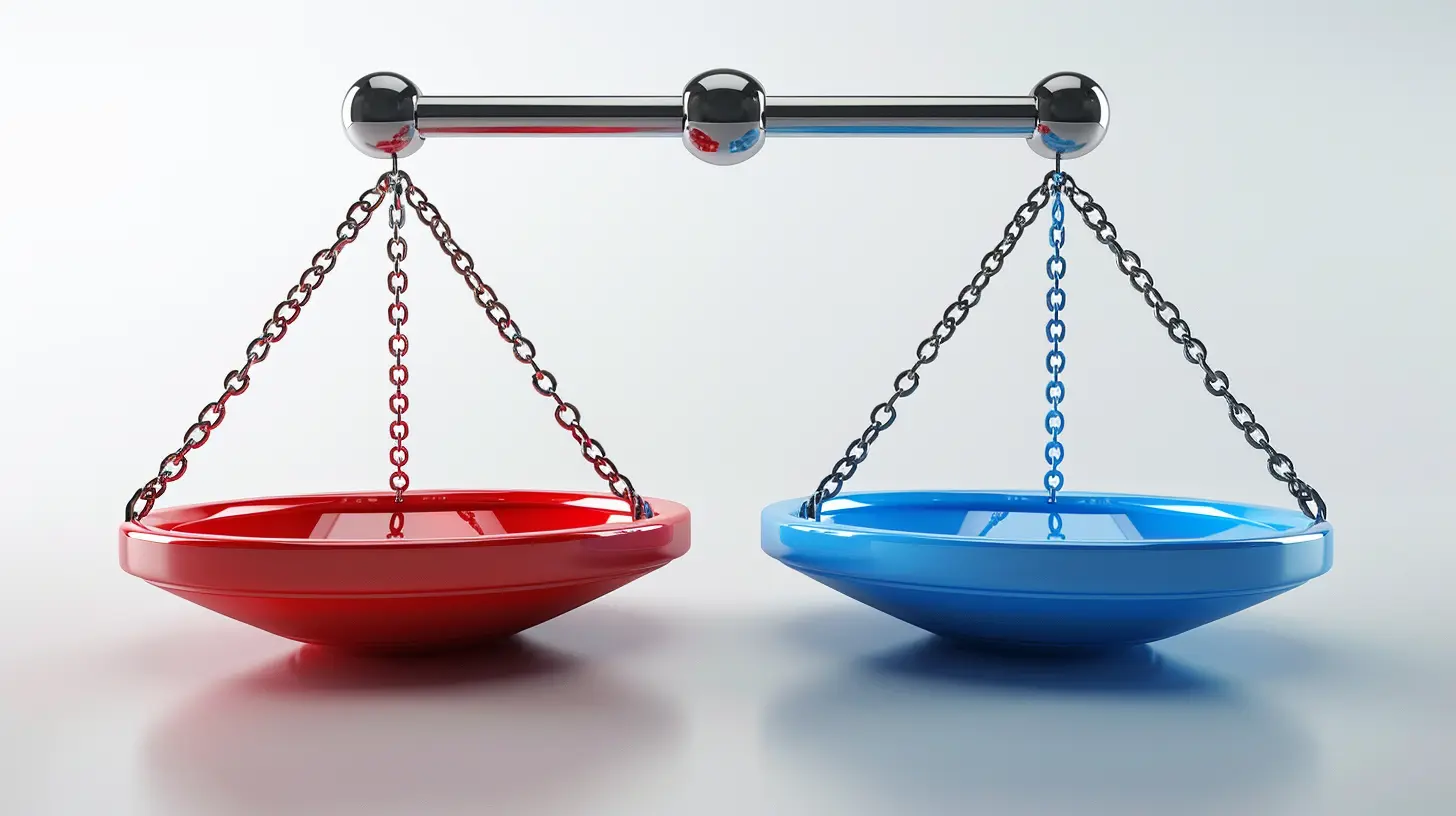Variable vs. Fixed Interest Rates: Which Debt Strategy Works for You?
1 July 2025
Ah, debt—our ever-reliable frenemy. We all need it at some point, whether it's for buying a house, going to college, or splurging on that dream vacation (bad idea, by the way). But before you jump into the deep abyss of loans, there’s one crucial decision to make: Variable or fixed interest rates?
One’s like a moody ex who changes their mind every other day, while the other is that predictable but kinda boring friend who never changes. So, which one should you pick? Let’s break it down in a way that won’t put you to sleep.

What Are Fixed and Variable Interest Rates?
Before we start throwing punches in the “which is better” debate, let’s define these two contenders.Fixed Interest Rate: The Safe, Predictable Choice
A fixed interest rate is exactly what it sounds like—it stays the same for the entire life of your loan. Whether you’re paying it off in five years or thirty, your interest rate won’t budge. Sounds nice, right?Pros:
✔️ Predictable monthly payments
✔️ Immune to market fluctuations
✔️ Easier budgeting
Cons:
❌ Usually starts higher than a variable rate
❌ No chance of benefiting if rates drop
Think of it like getting a tattoo of your ex’s name—big commitment, no take-backs.
Variable Interest Rate: The Wild Card
A variable interest rate, on the other hand, changes over time based on market conditions (usually tied to an index like the prime rate or LIBOR). Sometimes it’s lower than a fixed rate, sometimes it spikes high enough to make you cry.Pros:
✔️ Typically starts lower than fixed rates
✔️ Potential to save money if rates decrease
Cons:
❌ Payments can fluctuate (hello, anxiety!)
❌ Harder to budget
❌ Risk of sky-high rates if the market shifts
It’s kinda like dating someone unpredictable—you might have a thrilling, exciting time, but you could also end up crying into a tub of ice cream when things go south. 
Which One Works Best for You?
Now that we know what they are, let’s see which one suits your financial soul.1. Are You a Risk-Taker or a Safety Lover?
If your idea of excitement is watching your savings account slowly grow over time, a fixed rate is for you. No surprises, no shocks—just good old-fashioned stability.If, however, you enjoy a little thrill in your life (maybe even enjoy roller coasters and spicy food), a variable rate might be up your alley. Sure, there’s risk, but there’s also potential reward.
2. How Long Will You Keep the Loan?
If you’re getting a long-term loan (like a 30-year mortgage), a fixed rate generally makes more sense. Who knows where interest rates will be in 20 years? Better to lock in a rate now than gamble with your financial future.On the other hand, if you only need the loan for a few years (let’s say a five-year car loan), a variable rate could save you money—as long as rates stay low (big “if,” but hey, life’s about taking chances, right?).
3. Can You Handle Uncertainty?
Some people thrive on uncertainty. Others break out in hives just thinking about fluctuating payments. If you like to sleep peacefully at night, a fixed rate will save you from unnecessary stress.But if you can roll with market changes and stomach a bit of unpredictability in exchange for potential savings, a variable rate might suit you just fine. 
The Battle of Costs: Which One Saves You Money?
Ah yes, the million-dollar question (or, depending on your loan amount, the thousands-of-dollars question).1. Short-term loans: A variable rate can save you money if rates don’t spike.
2. Long-term loans: A fixed rate is usually a safer bet unless you really know what you’re doing (and let’s be honest, most of us don’t).
The problem with predicting savings? It’s like trying to predict what TikTok trend will go viral next—literally impossible.
If rates stay low, variable interest rates win. If they increase significantly, fixed rates look like the smarter move. Nobody has a crystal ball, so the decision comes down to how much risk you’re willing to take. 
When It Makes Sense to Go Fixed
✔️ You’re in it for the long haul (mortgages, student loans, etc.)✔️ Budgeting matters to you more than the possibility of saving a few bucks
✔️ You don’t want to stress over financial instability
This is the “grandma’s advice” option—the safe, predictable, and (mostly) stress-free choice.
When It Makes Sense to Go Variable
✔️ You’re taking out a short-term loan✔️ You believe (or hope) interest rates will stay low
✔️ You don’t mind a little financial chaos in your life
It’s not for the weak-hearted, but if the stars align, you could save some serious cash.
The Hybrid Option: Best of Both Worlds?
Not ready to commit to one side? Some lenders offer hybrid loans, where you start with a fixed rate for a certain period and then switch to a variable one.It’s kinda like a trial run before tying the knot—you get stability upfront but keep the option for flexibility later.
Final Verdict: Which One Should You Choose?
Let’s be real—there’s no universal “best” option. It all depends on:✔️ Your risk tolerance
✔️ How long you’ll keep the loan
✔️ Your financial stability
If you’re allergic to risk, go fixed. If you like living on the edge (or just want to save money up front), go variable. Either way, just make sure you actually understand what you’re signing up for (because, let's face it, reading loan terms isn’t exactly a fun weekend activity).
Final Thoughts: Don’t Let Your Interest Rate Choose You
Banks will happily offer whatever works best for them, not necessarily for you. So, do the math, think about your future, and choose wisely.Whether you go for a fixed or variable rate, one thing’s for sure—interest rates are like in-laws. You may not always love them, but you have to deal with them anyway.
all images in this post were generated using AI tools
Category:
Interest Rates ImpactAuthor:

Yasmin McGee
Discussion
rate this article
1 comments
Marni Wallace
Choose wisely; each strategy offers unique benefits for your future!
July 10, 2025 at 11:41 AM

Yasmin McGee
Thank you! It's crucial to evaluate your financial goals and risk tolerance when choosing between variable and fixed interest rates. Each has its advantages!


